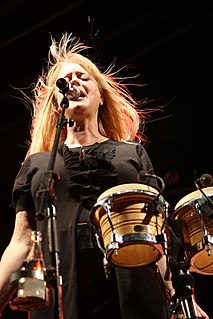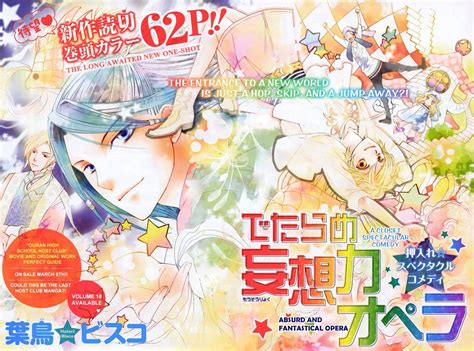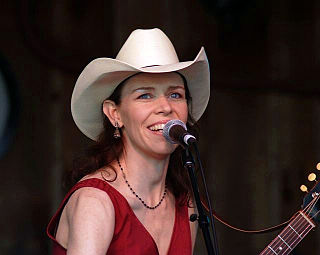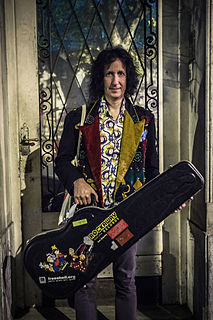A Quote by Joseph Gordon-Levitt
Music belongs to everybody. Having a little clique of the industry tell us what our culture is... I don't think that's healthy. And the Internet is helping us get away from that.
Related Quotes
Language both reflects and shapes society. Culture shapes language and then language shapes culture. Little wonder that the words we use to talk to each other, and about each other, are the most important words in our language: they tell us who I am, they tell us who you are, they tell us who 'they' are.
A lot of people write and tell us what The B-52s meant to them - straight, straight-A students, those who were a little awkward, weren't always the ones who fit in. People have told us that just having us and our music was beyond important and really made me feel that what we were doing was worth something big.
I don't want to follow the map of what the music industry does because I've already lived the industry and I still live the industry so I already understand how it works. The industry doesn't really like us around anyway once we get older because we know too much so, that's fine - cut us off - and we'll find another way to get it out there.
In the consumer culture of marriage, commitments last as long as the other person is meeting our needs. We still believe in commitment, because we know that committed relationships are good for us, but powerful voices coming from inside and outside tell us that we are suckers if we settle for less than we think we need and deserve in our marriage. Most baby boomers and their offspring carry in our heads the internalized voice of the consumer culture-to encourage us to stop working so hard or to get out of a marriage that is not meeting our current emotional needs.
We're always contradicting ourselves. We want people to tell us apart.... ...yet we don't want them to be able to. We want people to get to know us... ...but we also want them to keep their distance. We've always longed for someone to accept us... But we never believed there'd be anyone who would accept our twisted ways. That's why we'll stay locked up tight... ...in our own little private world... ...and throw away the key, so that no one can ever hurt us.
Each person comes to have this musical experience, this moment with us, where they get to sink into our world for a little while. It’s this very unhurried world. It’s fairly quiet, it’s contemplative, but it can be quite panoramic. I think people think interesting thoughts at our shows, and they go rather deeply into some personal experience of their own. I’m really proud that our music seems to connect, because it’s not for everybody. But for the people that our music works for, it really gets down pretty deep in there.
Music can move us to the heights or depths of emotion. It can persuade us to buy something, or remind us of our first date. It can lift us out of depression when nothing else can. It can get us dancing to its beat. But the power of music goes much, much further. Indeed, music occupies more areas of our brain than language does-humans are a musical species.
We need changes from the duties and the cares of our accustomed everyday life. They are necessary for healthy, normal living. We need occasionally to be away from our friends, our relatives, from the members of our immediate households. Such changes are good for us; they are good for them. We appreciate them better, they us, when we are away from them for a period, or they us.
Little by little, in telling Sam all these details, I got to see the bigger point of baseball, that it can give us back ourselves. We’re a crowd animal, a highly gregarious, communicative species, but the culture and the age and all the fear that fills our days have put almost everyone into little boxes, each of us all alone. But baseball, if we love it, gives us back our place in the crowd. It restores us.
I think the music industry, for instance, is such a huge, multibazillion-dollar industry and it's become very, very savvy. There's a very short grace period in which actual human rebellion or resistance can thrive before it's co-opted by these huge companies. And all of youth culture is packaged and sold back to us at this furious rate these days. I think it's part and parcel to this corporate encroachment on our lives in general.
I feel that for years of teaching in the country and reading criticism in books, I feel like the things most needed in our culture are the understanding of the meanings of our music. We haven't done that good of job teaching our kids what our music means or how we developed our taste in music that reminds us and teaches us who we are.
The depression belongs to all of us. I think of the family down the road whose mother was having a baby and they went around the neighborhood saying, "We're pregnant." I want to go around the neighborhood saying, "We're depressed." If my mum can't get out of bed in the morning, all of us feel the same. Her silence has become ours, and it's eating us alive.
Argentina is a very interesting culture because unlike Europe and the US, they did not abandon rock and roll music, they did not turn their backs on it. It's an important part of their culture. So guitar music is an important part of their culture. So me being into rock music, I get respect working there, which wasn't happening in Europe or in the US.




































